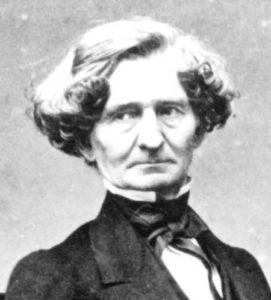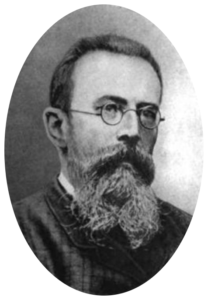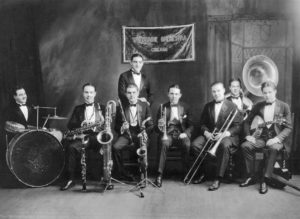


Question for Discussion: The Role of Music in The Master and Margarita
One of the more obvious, and delightful, elements of this story is the role of music in The Master and Margarita. Notably, many characters bear the names of famous composers: Berlioz, Rimsky, and Stravinsky, to name a few. In addition, a number of scenes feature actual music, either being played, or heard on the radio. Consequently the novel often seems to provide its own soundtrack. So what are among the ways Bulgakov uses music in this novel, and what do these say about his musical tastes?
Some things to consider include:
How does he present Jazz music, which in his time was an American phenomenon that was sweeping the globe? What are we to make of the description, during the party at Satan’s, that the jazz band and the orchestra seem to be “warring” with each other?
Does the representation of characters reflect Bulgakov’s view of the music created by a character’s namesake? For example: can the music of Berlioz be said to be “bald, and terribly eloquent”? Should the “voice” of Rimsky-Korsakov compositions be described as “sharp and unpleasant”? And could Prokofiev’s music be characterized as ebullient, and with a certain joie de vivre, like Margarita’s housekeeper Natasha Prokofievna?
Another related question concerns how Bulgakov felt about radio broadcasts, which had begun airing in Moscow only a few years before he started to write this novel. Especially notable is the music from the opera Yevgeniy Onegin, booming from radios everywhere in Moscow; out of doors, windows, rooftops, basements, courtyards . . . accompanying, and torturing, Ivan as he searches the streets of Moscow for the devious consultant, or professor. Radio makes other intriguing appearances in the novel as well.
Feel free to comment on any of these questions, and pose others in this discussion of music in The Master and Margarita.



During the discussion among Voland, Ivan Bezdomny and Berlioz, Voland says to Ivan that he should have asked professor what schizophrenia is, because “then you would know that he had it.” Is he suggesting that Stravinsky, or his music schizophrenic?
Cannot comment your question if the music is schizophrenic or not. Did not even know it was Stravinsky.
Anyway, the russian choir and its forceful performance knocked me down.
Could you tell which music composition we are dealing with?
My question is not about a particular composition of Stravinsky’s, but rather to whether or not Bulgakov, by naming a character that he suggests is schizophrenic “Stravinsky,” is implying that the namesake composer or his music was schizophrenic.
The Russian people pride themselves, in many ways measure themselves by how much they can endure. It is in their nature to project strength and this often is not well received, particularly by Americans. But if one takes the time to talk with them, (knowing a little Russian helps) one finds they they are quite friendly and fiercely loyal. My question is how long had you been studying Russian history and language before you went to live there? I am going to assume this was a long time goal of yours and quest/dream. Did it meet your expectations? I’ve been told your Russian is quite good, almost no accent and that’s very difficult to achieve. I have to be honest with you I am a little envious and that’s not something I’m given to but never the less it’s there. I think your personal story, your journey to discover the essence, the hidden meaning of what it means to be Russian would be an interesting story. «Не ходи в другой монастырь со своими правилами».
I only lived in Russia, Saint Petersburg to be exact, briefly on a study-abroad program in my senior year as an undergraduate. That was in 1992, soon after the abdication of the Communist regime and the breakup of the Soviet Union. I’ve returned twice to visit: in 2002 to ride the Trans-Siberian Railway from Vladivostok to Moscow, and again 2012 to travel there with my wife. I had nursed the desire to learn Russian and translate Russian literature for more than ten years; since first reading classics, like Crime and Punishment, and War and Peace. With the publication of my translation of this novel, I have achieved that dream.